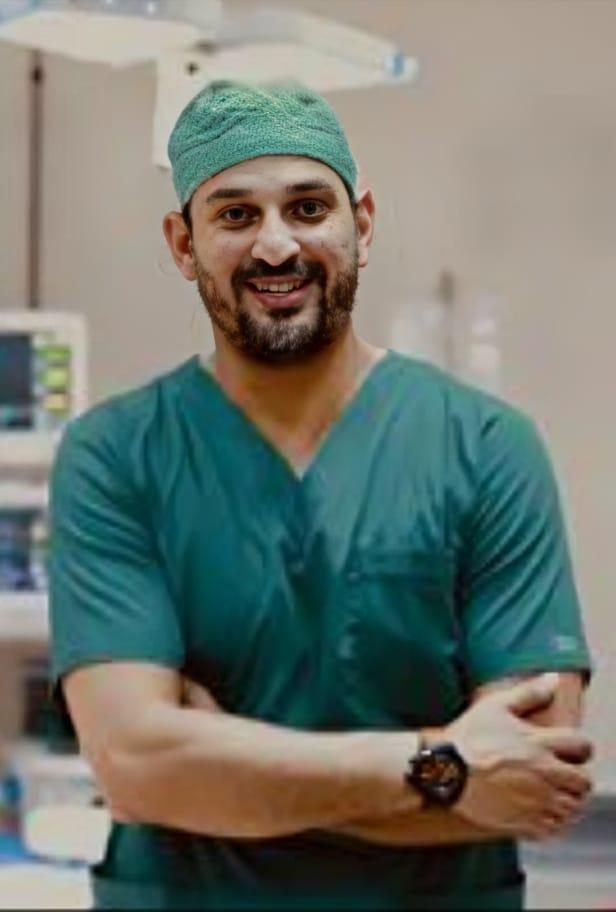Dr. Mohamed Al-Qarqari - Consultant General Surgery, Laparoscopy, and Obesity Surgery
About Dr. Mohamed Al-Qarqari
Dr. Mohamed Al-Qarqari is a Consultant in General Surgery, Laparoscopy, and Obesity Surgery, and an Assistant Professor at the Faculty of Medicine, Suez Canal University. Dr. Al-Qarqari has extensive experience in various surgical specialties, including oncology and endocrine surgery, as well as obesity surgery such as sleeve gastrectomy and gastric bypass. He also specializes in laparoscopic liver, gallbladder, and bile duct surgery.
Medical Specialties:
General Surgery for Adults: Performing advanced surgical procedures for adults, including emergency and chronic cases.
Obesity and Weight Loss Surgery: Treating obesity through modern bariatric surgeries such as sleeve gastrectomy and gastric bypass.
Abdominal Surgery: Includes surgery for the intestines, stomach, and internal organs.
Endocrine Surgery: Treating disorders affecting the endocrine glands, such as thyroid conditions.
Gastrointestinal Surgery and Laparoscopy for Adults: Performing laparoscopic surgeries to treat gastrointestinal issues.
Colon Cancer Surgery: Diagnosis and surgical treatment of colon tumors.
Academic and Professional Experience:
2014: Graduated from the Faculty of Medicine, Suez Canal University.
2021 - Present: Assistant Professor of General Surgery, Laparoscopy, and Obesity Surgery at the Faculty of Medicine, Suez Canal University.
Clinic Location:
Ismailia City: Arafa and Tahrir Streets, above the Qatar National Bank.
Contact Number: 0101 111 2225.

